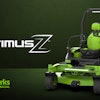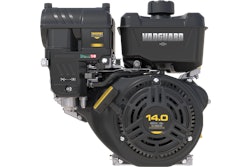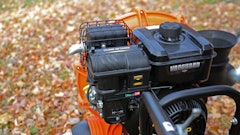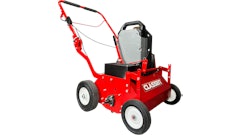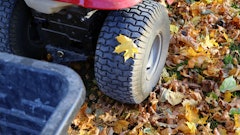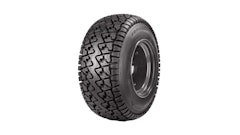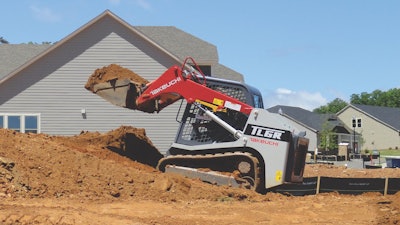
According to the Farmer’s Almanac, the winter of 2019-2020 will be filled with bitterly cold weather in the eastern parts of the Rockies and east to the Appalachians. The Northeast should also experience very cold temperatures as well.
For municipalities, public utilities, landscapers and others that are involved in outdoor work and snow removal, there is always plenty of annual winter preparation.
One thing that may be overlooked is the proper management of Diesel Exhaust Fluid (DEF) used in many diesel-powered trucks.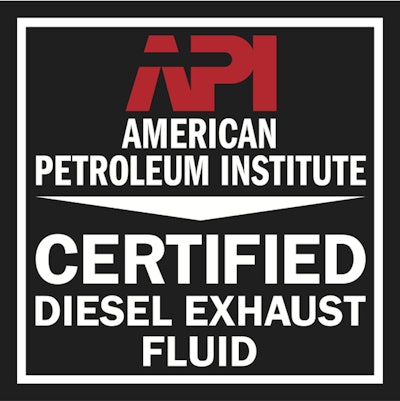
Handling and storing DEF can be challenging in wintertime for drivers filling up on the road and for shops. Made from a mixture of technically pure urea and purified water, DEF freezes at 11 degrees Fahrenheit and needs to be properly maintained and dispensed to preserve its quality.
Like water, DEF will expand up to seven percent when frozen and can damage the storage tank if it is full or nearly full when it freezes. Keeping a tank that you think may freeze less than full is a good idea.
If DEF freezes in the vehicle, do not put any additives in the tank to help it melt. DEF needs to remain pure for it to work correctly. The vehicle will start without a problem and the DEF tank has a heating element that can quickly thaw the DEF. Don’t worry; on-spec DEF is specifically formulated to allow the fluid to thaw at the proper concentration to keep your vehicle operating smoothly.
In addition to cold, there are other things to consider when purchasing, storing and handling DEF. Drivers accustomed to purchasing DEF in containers should look at the expiration date on the bottle and be sure to use it before this date as the product has a limited shelf life.
If a date is not present, ask for the most recently delivered DEF products. Also, be sure to look for the API certification mark on the bottle as well. Many diesel engine manufacturers recommend that drivers use API-licensed DEF.
Storage conditions have an impact on its quality. DEF can be expected to have a minimum shelf life of 12 months or even longer in optimum conditions. Check the label for recommended storage temperatures. API recommends that you don’t store if for too long in your truck once you purchase it, especially if the storage area in the vehicle is routinely exposed to extreme heat or sunlight.
Purchasing DEF for Shop Use
API has found that the biggest misconception by fleet managers is the belief that if the urea concentration of their DEF is on spec, then the DEF meets the required quality. While it is true that the concentration is very important, there are many other important quality characteristics built into the ISO 22241 specification regarding DEF.
Those responsible for procuring DEF should confirm that their suppliers are providing DEF that meets the entire ISO quality standard. One way to do this is to ensure that their supplier is providing a Certificate of Analysis (or Quality) with every shipment that addresses all the quality characteristics that the specification requires. You can also check to see if the DEF they are buying is licensed through API’s real-time directory of licensees on the API website.
Handling, storage and dispensing
For shops, the handling, storage and dispensing of DEF is very important so that off-spec DEF doesn’t reach the marketplace. Temperature during transport or at the point of storage or sale can harm the shelf life of DEF sold in containers.
Make sure the stock is rotated to use the oldest product first. Proper storage temperatures in a shop is also vital. Storing in temperatures above 86 degrees Fahrenheit will limit the shelf life of the DEF over time. Some additional things to consider in storing and handing DEF include the following:
- Bulk storage tanks should be dedicated for DEF. Don’t switch products in the bulk tank without thoroughly rinsing the tank with distilled or de-ionized water or on-spec DEF.
- A closed loop system for transferring DEF from a drum or bulk tank is recommended so contaminants don’t get into the DEF. This is particularly important in a shop or construction site that has dust or dirt in the air.
- Use dedicated equipment for dispensing DEF. Don’t use funnels, pitchers, hoses, etc. that are used for other fluids when putting DEF in a tank.
- Anything used for dispensing DEF should be cleaned with distilled or de-ionized water and followed by a DEF rinse. Don’t use tap water for cleaning.
For shops and drivers, it’s important to know what you are putting into your DEF tank. The quality of the DEF going into your vehicle is as important as the quality of the engine oils or fuels used in your vehicles. Use of API-licensed Diesel Exhaust Fluid will ensure that the DEF meets the high standards required by engine and vehicle manufacturers.
